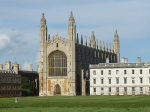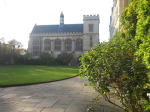
Culture
-
 Dutch Eurovision contestant Joost Klein disqualified after backstage incident
The Dutch artist Joost Klein has been disqualified from the Eurovision Song Contest following a backstage incident, as reported by Swedish police after a female member of the productionRead More...
Dutch Eurovision contestant Joost Klein disqualified after backstage incident
The Dutch artist Joost Klein has been disqualified from the Eurovision Song Contest following a backstage incident, as reported by Swedish police after a female member of the productionRead More... -
 King Charles assumes historic patronage ties to monarchy spanning over 200 years
In 2022, Buckingham Palace announced a comprehensive review of all royal patronages. Following the passing of Queen Elizabeth II, nearly 500 charities and organizations found themselvesRead More...
King Charles assumes historic patronage ties to monarchy spanning over 200 years
In 2022, Buckingham Palace announced a comprehensive review of all royal patronages. Following the passing of Queen Elizabeth II, nearly 500 charities and organizations found themselvesRead More... -
 Homes England pledges £120,000 investment in Northstowe community initiatives
Homes England, the governmental body overseeing housing and urban revitalization efforts, has unveiled plans to allocate £120,000 in grant funding to support community-driven initiativesRead More...
Homes England pledges £120,000 investment in Northstowe community initiatives
Homes England, the governmental body overseeing housing and urban revitalization efforts, has unveiled plans to allocate £120,000 in grant funding to support community-driven initiativesRead More... -
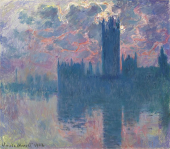 Fake Monet and Renoir paintings detected on eBay using AI
Up to 40 counterfeit paintings, including alleged works by Monet and Renoir, have been identified for sale on eBay, according to research conducted by Dr. Carina Popovici, an expertRead More...
Fake Monet and Renoir paintings detected on eBay using AI
Up to 40 counterfeit paintings, including alleged works by Monet and Renoir, have been identified for sale on eBay, according to research conducted by Dr. Carina Popovici, an expertRead More... -
 Pippa Middleton and James Matthews unveil lodge at Bucklebury Farm
Pippa Middleton and her billionaire husband James Matthews have inaugurated the lodge at Bucklebury Farm Park in Berkshire, offering a venue for parties, events, and Pilates sessions.Read More...
Pippa Middleton and James Matthews unveil lodge at Bucklebury Farm
Pippa Middleton and her billionaire husband James Matthews have inaugurated the lodge at Bucklebury Farm Park in Berkshire, offering a venue for parties, events, and Pilates sessions.Read More... -
 Five British museums nominated for prestigious arts prize
Museums across Skipton, Dundee, Manchester, and London are vying for the esteemed title of Museum of the Year 2024.Read More...
Five British museums nominated for prestigious arts prize
Museums across Skipton, Dundee, Manchester, and London are vying for the esteemed title of Museum of the Year 2024.Read More... -
 Gustav Klimt portrait sells for £25.7 million at Vienna auction
A long-lost portrait by Gustav Klimt, depicting a young woman, fetched a staggering 30 million euros (£25.7 million) at an auction held in Vienna on Wednesday.Read More...
Gustav Klimt portrait sells for £25.7 million at Vienna auction
A long-lost portrait by Gustav Klimt, depicting a young woman, fetched a staggering 30 million euros (£25.7 million) at an auction held in Vienna on Wednesday.Read More... -
 Rishi Sunak: remembering those lost in terror attack
In his Passover message to the Jewish community, Prime Minister Rishi Sunak acknowledges the somber reality that "for too many families, there will be empty seats" at the Seder table thisRead More...
Rishi Sunak: remembering those lost in terror attack
In his Passover message to the Jewish community, Prime Minister Rishi Sunak acknowledges the somber reality that "for too many families, there will be empty seats" at the Seder table thisRead More... -
 Co-op Live: Manchester's new arena opens with high capacity and ambitions
A monumental addition to Manchester's entertainment landscape, the new £365m Co-op Live arena is poised to claim the title of the largest indoor arena in the UK. Nestled beside ManchesterRead More...
Co-op Live: Manchester's new arena opens with high capacity and ambitions
A monumental addition to Manchester's entertainment landscape, the new £365m Co-op Live arena is poised to claim the title of the largest indoor arena in the UK. Nestled beside ManchesterRead More... -
 Brontë birthplace unveils open day prior to renovation
The birthplace of the renowned Brontë sisters is set to welcome visitors for a special glimpse inside before embarking on a significant refurbishment.Read More...
Brontë birthplace unveils open day prior to renovation
The birthplace of the renowned Brontë sisters is set to welcome visitors for a special glimpse inside before embarking on a significant refurbishment.Read More... -
 Taylor Swift's 'The Tortured Poets Department' smashes Spotify record
Taylor Swift's latest album, "The Tortured Poets Department," has shattered Spotify's record for the most-streamed album in a single day, the platform has announced. Not only did Swift'sRead More...
Taylor Swift's 'The Tortured Poets Department' smashes Spotify record
Taylor Swift's latest album, "The Tortured Poets Department," has shattered Spotify's record for the most-streamed album in a single day, the platform has announced. Not only did Swift'sRead More... -
 Historic London pub, linked to Royalty, ravaged by fire: a heartbreaking loss
A renowned London pub, steeped in history dating back possibly to the 16th century, has suffered extensive damage in a devastating fire. The Burn Bullock, a grade II-listed establishmentRead More...
Historic London pub, linked to Royalty, ravaged by fire: a heartbreaking loss
A renowned London pub, steeped in history dating back possibly to the 16th century, has suffered extensive damage in a devastating fire. The Burn Bullock, a grade II-listed establishmentRead More... -
 Salvator Rosa painting stolen from Oxford, recovered in Romania, and returned to UK
A painting valued at EUR 2 million, stolen from an art gallery at Oxford University approximately four years ago, has been recovered in Romania and returned to UK judicial authorities,Read More...
Salvator Rosa painting stolen from Oxford, recovered in Romania, and returned to UK
A painting valued at EUR 2 million, stolen from an art gallery at Oxford University approximately four years ago, has been recovered in Romania and returned to UK judicial authorities,Read More...

British Queen celebrates
Most Read
- Teen held after US woman killed in London stabbings
- Heave-ho Harry! Prince prepares to join the walking wounded in ice trek to North Pole
- Football: Farhad Moshiri adamant Everton deal above board
- "Master of English Style". Interview with Designer Lydia Dart
- Letter to the Financial Times from Lord Mayor Alderman Michael Bear
UK news

London taxi drivers have brought Westminster to a standstill in a protest over their ban from dedicated Olympic traffic lanes.
More than 200 black cabs arrived in Parliament Square blaring their horns to tourists' bemusement.
Their demonstration is targeted at Games' organisers who developed the so-called Zil lanes available only to Olympics officials, athletes and other approved vehicles.
Jonathan Myers, of the United Cabbies group union, said: "There will be no access to these lanes for any traffic apart from the Olympics family.
"Taxis are excluded, which is unacceptable and wrong. This is a working city and we need to get around and do our job."
Parliament Square quickly ground to a halt as the drivers descended on central London for what they plan to be a two-hour protest.
Traffic soon snarled up Whitehall, Millbank and over Westminster Bridge as car horns and traffic fumes filled the air.

One of Britain's largest milk suppliers is relaxing rules that tie crisis-hit farmers into 12 month contracts.
Dairy Crest, which supplies around 15% of British milk production, said farmers will be able to move their milk supply with three months' notice if they are unhappy with price changes, instead of the 12 months currently.
The move will give farmers more flexibility and comes as part of measures to help offset the impact of damaging milk price cuts on the industry.
But the change will not come into effect until after Dairy Crest's 1.65p per litre price cut planned for August 1.
Dairy Crest - behind well-known brands Cathedral City, Clover and Country Life - is one of a number of milk producers that have slashed the price they pay farmers for milk after seeing the value of cream plummet this year.
The National Farmers Union (NFU) said it welcomed the decision by Dairy Crest to reduce the notice period for milk suppliers, but it warned farmers wanted to see a reversal of the price cut and would demonstrate again if the reduction was not scrapped.
More than 2,500 farmers gathered in London last week to protest about the cuts.

The rate of inflation dropped to a 31-month low last month, official figures have shown, as record rainfall forced clothing retailers to bring forward their summer sales.
The consumer price index (CPI) rate of inflation fell to a lower-than-expected 2.4% in June, from 2.8% in May, the Office for National Statistics (ONS) said. City analysts had forecast the rate to drop to 2.7%.
The fall in CPI was driven by a record May-to-June decline in clothing and footwear prices, which the ONS said was more typical of the June-to-July period, reflecting earlier than average seasonal discounting.
Inflation has fallen from 5.2% last September due to the waning impact of the VAT hike at the start of 2011, falling energy, food and commodity prices, and a number of bill cuts from utility providers. Inflation is now within 0.5% of the Government's 2% target.
Chloe Smith, the Economic Secretary to the Treasury, said: "Inflation has more than halved since September, meaning a little less pressure on family budgets. This lower inflation should support high street spending and growth in the economy in the months to come."
Last month's drop will add weight to the Bank of England's decision earlier this month to pump more emergency cash into the economy through its quantitative easing programme. The steeper-than-expected fall is also likely to raise the likelihood of further emergency support later this year as the UK struggles with weak growth.

Every country competing at the London Games will include female athletes for the first time in Olympic history after Saudi Arabia agreed Thursday to send two women to compete in judo and track and field.
The move by the ultraconservative Muslim kingdom to break with its practice of fielding male-only teams followed earlier decisions by Qatar and Brunei to send women athletes to the Olympics for the first time.
“With Saudi Arabian female athletes now joining their fellow female competitors from Qatar and Brunei, it means that by London 2012 every national Olympic committee will have sent women to the Olympic Games,” IOC President Jacques Rogge said.
Saudi Arabia had been under intense pressure from the International Olympic Committee and human-rights groups to include female athletes. Thursday’s announcement followed months of IOC negotiations with the Saudis to bring women to London.
The two female Saudi athletes selected to compete are Wodjan Ali Seraj Abdulrahim Shahrkhani in judo and 800-meter runner Sarah Attar.
“A big inspiration for participating in the Olympic Games is being one of the first women for Saudi Arabia to be going,” the 17-year-old Attar said in an IOC statement from her U.S. training base in San Diego. “It’s such a huge honor and I hope that it can really make some big strides for women over there to get more involved in sport.”
The two athletes, who were invited by the IOC, were entered by the Saudi Arabian Olympic Committee by the July 9 deadline.
“This is very positive news and we will be delighted to welcome these two athletes in London in a few weeks time,” Rogge said in a statement.
The Gulf kingdom will also include female officials in their Olympic delegation for the first time.
About 10,500 athletes are expected to compete in London, representing more than 200 national Olympic committees.
“The IOC has been working very closely with the Saudi Arabian Olympic Committee and I am pleased to see that our continued dialogue has come to fruition,” Rogge said. “The IOC has been striving to ensure a greater gender balance at the Olympic Games, and today’s news can be seen as an encouraging evolution.”
Rights groups hailed the decision as a step forward for Saudi women in their quest for basic rights in a country that severely restricts them in public life.

The Government department dealing with business will have to manage much tighter finances in the future as a result of the coalition's spending review, an official report has found.
The Department for Business, Innovation and Skills (BIS) is targeting a 27% reduction in resources between 2010/11 and 2014/15, although its total spending is forecast to reduce by 6% during the four-year period, said the National Audit Office (NAO).
The spending watchdog praised the department for keeping its financial management on track during a period of "substantial" organisational change.
The department, headed by Business Secretary Vince Cable, was said to have worked hard to improve its financial management.
Amyas Morse, head of the NAO, said: "The department should meet the challenges posed by the 2010 spending review through coherent strategic planning, rather than short-term fire-fighting.
"Until it does so, the department will not achieve the value for money it needs from its financial management activities."
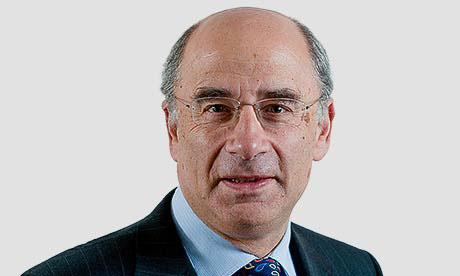
A judge investigating journalistic ethics has begun to look at "remedies" to complaints about the press.
Lord Justice Leveson said "Module 4" of his inquiry into press standards would examine "the way forward".
He said as part of his analysis he would be hearing evidence about the "potential for improvement" to data protection legislation.
"Module 4 concerns the way forward and, in particular, the future approach to complaints and press standards along with the availability of remedies," the judge told the Leveson Inquiry in London.
"As part of this consideration of the future of standards and remedies, I intend to hear evidence about the potential for improvement to the data protection legislation."
He added: "I have not only sought to hear from those with ideas for the future. I have also asked editors ... from the range of newspapers and magazines, along with others who might have an interest."
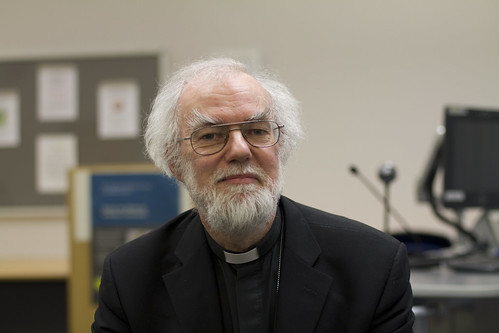
The Church of England has voted to put a historic decision on introducing the first women bishops on hold amid continuing divisions over the issue.
Members of the General Synod backed delaying a final approval debate for legislation introducing women bishops to allow for further consideration of a controversial last-minute amendment made by the Church of England bishops.
Protests from senior female clergy who said the amendment would have enshrined discrimination against women in the law prompted the move.
The Archbishop of Canterbury, Dr Rowan Williams, warned the meeting at York University that an adjournment would not be a "panacea" but would give a chance to "lower the temperature" within the Church of England over the dispute.
"It is quite clear that the reaction cannot be ignored," he said. "When there is a reaction of real hurt and offence in the Church, Christians, and Christian pastors in particular, cannot afford to ignore it. An adjournment gives us at least the chance of lowering the temperature and explaining ourselves to each other."
Some 288 General Synod members voted in favour of an adjournment, 144 against and 15 abstained. The move means that the bishops of the Church of England will reconsider the amendment - known as clause 5 (1) (c) with the legislation set to return for final approval in November.
The vote comes after the Rt Rev Nigel McCulloch, Bishop of Manchester and chairman of the steering committee for the legislation, said it would be "nothing short of tragic and hugely damaging" to the Church's reputation if the legislation were to be voted down.

Chelsea and England defender John Terry arrived in court on Monday for his trial on charges of racially abusing Anton Ferdinand during a football match last year.
Terry, 31, is accused of a racially aggravated public order offence following the emergence of video footage which appeared to show him abusing the Queens Park Rangers defender, who is mixed race, during a Premier League match in October 2011.
Terry, who was wearing a grey suit and pink tie, did not speak to reporters as he arrived at the court in central London on Monday.
A few supporters outside shouted "Good luck, John!"
At an earlier hearing his lawyers entered a not guilty plea on his behalf.
If found guilty Terry could be fined up to £2,500 (3,150 euros, $3,850), although the damage to the player's lucrative commercial deals would likely be far greater.
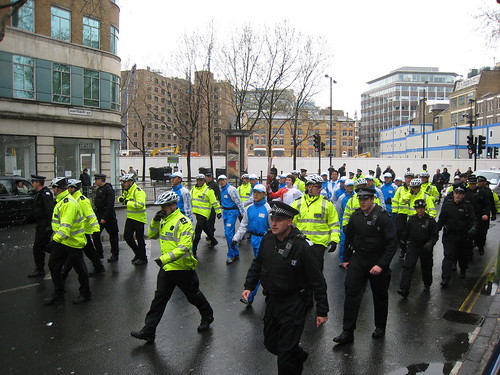
An Islamist terror suspect in Britain charged with breaking restrictions on his movements had crossed through London's Olympic Park five times, newspapers reported Sunday.
The 24-year-old -- named only as CF -- is suspected of being a militant for Somalia's Al-Qaeda-allied Shebab rebels, The Sunday Telegraph and the Sunday Mirror said.
He is one of nine people suspected of being a risk to national security who are subject to Terrorism Prevention and Investigation Measures (TPIM) -- legal orders which restrict movements, contacts and computer use.
The Sunday Mirror said he was a British jihadist. The Sunday Telegraph said he comes from a large Somali family in north London.
CF was deported from Somalia back to Britain in March last year.
He served two months in jail for a previous absconding offence before being released and placed under the TPIM restrictions and ordered to live in Norwich, eastern England.
He wears an electronic tag allowing the authorities to track his movements.
CF was arrested again last month and charged with five separate breaches of an order banning him from using the train route which passes through the Olympic Park in Stratford, east London.
The alleged offences occured between April and May.

This June was the wettest since records began, with double the average rain falling during the month, the Met Office has said.
Provisional figures showed the UK received 145.3mm (5.7 inches) during June, beating the previous record of 136.2mm (5.4 inches) seen in June 2007.
It is the second month this year to see record-breaking amounts of rain, after this April became the wettest in the records dating back more than a century to 1910.
June saw long, prolonged rainfall and short but exceptionally heavy showers, and ended with freak storms which battered areas of the Midlands and the North East. The exceptional amount of rain caused floods in Wales and parts of England.
Last month was also the one of the dullest Junes on record, with just 119.2 hours sunshine, only slightly less miserable than June 1987 when a record low of 115.4 hours was recorded. And the UK has experienced the coolest June since 1991, with average temperatures of 12.3C (54F).











